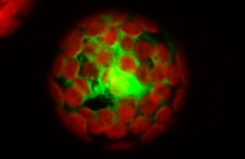News
GARNet-SEB Symposium
Registration now open!!!
From Proteome to phenotype: role of post-translational modifications
Organised by Steven Spoel (University of Edinburgh), Geraint Parry (GARNet),
and Cyril Zipfel (The Sainsbury Laboratory)
Registration
Abstracts
Programme
GARNet sponsored Travel Grants
Accommodation and travel
Post-translational protein modifications add a tremendous amount of complexity to cellular proteomes. The large variety of post-translational modifications (PTMs) and their concurrent appearance in proteins dramatically increase the proteome size from mere thousands to the order of millions of possible protein forms. Emerging evidence indicates that in plants crucial regulatory PTMs that control protein function and activity include, amongst others, phosphorylation, ubiquitination, sumoylation, various redox-based modifications, palmitoylation, methylation, riboylation and acetylation. PTMs intimately regulate a large variety of plant developmental programmes and responses to their environment. Indeed, PTMs are often reversible due to the action of specific enzymes, allowing them to be used as dynamic signalling switches that control protein function. Although PTMs are widely accepted to play indispensable roles in plant developmental and stress responses, how these PTMs generate phenotypical traits is still poorly understood.
While major advances have already been made particularly in mammalian PTM signalling, the role of PTMs in plant biology is comparatively poorly understood. Only recently plant scientists have begun to mine the proteome for regulatory PTMs and it has rapidly become clear that PTMs play crucial roles in transforming functional plant proteomes into phenotypes. This symposium is a timely effort to bring together a growing global community of plant scientists that recognize the importance of signalling by PTMs.
We will provide an enhanced understanding and appreciation for the role post-translational protein (PTMs) modifications play in shaping plant phenotypical traits and will be suitable for researchers at any stage in their careers. We particularly welcome early-career PhD students and postdocs, who will benefit most from exposure to the current changing perspective on which factors determine phenotypic traits.
Additionally, PhD students and postdocs can take advantage of a hands-on Plant Proteomics workshop on day 3 of the meeting, which is co-funded by GARNet, a BBSRC sponsored network that supports the UK plant science community. This hands-on workshop will be led by Dr Alex Jones (University of Warwick) and will allow researchers to obtain real-time experience in handling proteomics data and utilising systems approaches.Visit the symposium website now!!


